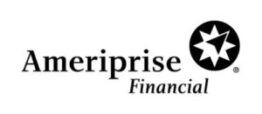
Craig David Dima of Ronkonkoma, New York settled his regulatory enforcement action with FINRA by agreeing to a permanent bar from the securities industry. The bar is based on Dima’s conduct relating to an account for a 73 year-old retiree which included unauthorized trades, misrepresentations and excessive fees and commissions charged to the elderly client.
The client first opened an account with Dima in 2006 when he was employed at K. C. Ward. The client had worked at Colgate-Palmolive for 28 years and had accumulated 7,543 shares of the company stock during her employment. Dima repeatedly sold shares from the client’s account. When she questioned him about the sales, he attributed the trades to human or computer errors on the part of his firm or K.C. Ward’s clearing firm, RBC.
Of course, since the client desired to hold the Colgate stock, Dima had to buy back the shares he had sold; in fact, three times he sold the client’s entire Colgate position and then bought it back.
Between 2010 and 2015, Dima entered 82 unauthorized trades of the Colgate stock. The client was charged $372,000 in excessive mark-ups/markdowns, $4,000 in “ticket” charges and lost $127,000 in unpaid dividends. This client was Dima’s largest client at K.C. Ward; she represented 80% of the commissions/fees he generated in his customers’ accounts.
Where were K. C. Ward’s branch manager and Compliance Officer?
The more you look into this case, the more outrageous it becomes. Dima has been in the securities industry for 21 years – and worked at 18 firms. Five of those firms have been kicked out of the securities industry. Dima has 11 disclosures (not including the FINRA bar) on his BrokerCheck report, including two customer complaint settlements, one customer arbitration award and a $58,000 IRS lien.
Where was K. C. Ward’s management when Dima was buying and selling a blue chip, dividend-paying stock in the account of an elderly retired woman? If the account represented 80% of his production, the account had to appear on some type of exception report at some point in time. Did the activity in this account come to the attention of K.C. Ward’s compliance officers during annual branch reviews? Did anyone at the branch ever bother to contact the client to discuss the in and out trades of the Colgate stock? Given Dima’s employment and complaint history, why wasn’t he on heightened supervision?
This case is a prime example of the failure of a brokerage firm to properly supervise its employee. Failure to supervise is a distinct securities violation. Experienced securities arbitration attorneys such as the ones at The Guiliano Law Group know how to craft an arbitration claim against a brokerage firm which fails to properly supervise its brokers, as appears to be the case here. Such a claim is separate and distinct from any claims against the broker and can lead to a recovery against the broker and his firm.
And where was FINRA? See our recent article on Rogue Brokers. Dima appears to be exactly the type of broker who should have been kicked out of the securities industry a long time ago. A little too late on the part of FINRA, at least in this case.
Since 1995, Dima has been associated with eighteen firms, sixteen of which that have been expelled from FINRA, or are otherwise defunct, generally as the result of the payment of customer arbitration awards or regulatory fines. #cockroach.
Clients should read their trading confirmations and account statements. You can trust your broker – but verify! As for the repeated excuses from Dima about human or computer errors – unfortunately, the acceptance of these assurances by the client enabled Dima to continue his scheme for years. One phone call to a branch manager may have ended it. The lesson for customers is to not hesitate to pick up the phone to call branch management to voice any concerns.
Guiliano Law Group
Our practice is limited to the representation of investors. We accept representation on a contingent fee basis, meaning there is no cost to you unless we make a recovery for you. There is never any charge for a consultation or an evaluation of your claim. For more information, contact us at (877) SEC-ATTY.
To learn more about FINRA Securities Arbitration, and the legal process, please visit us at securitiesarbitrations.com








